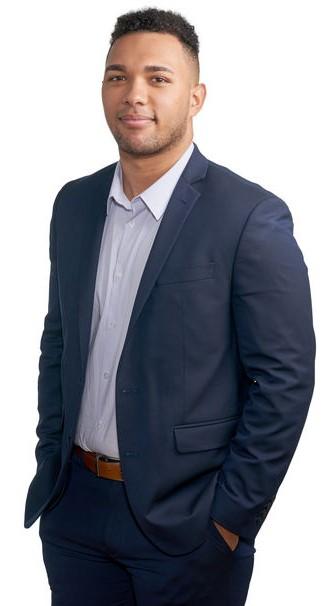2019 Senior Celebration Speaker: Yaseen Gholizadeh
April 29, 2019

There’s no doubt that he’ll thrive as an investment banker, but his motives transcend financial self-enrichment. “The way that I measure success has no title or salary,” he remarks. “Instead, it’s predicated on the number of lives that an individual changes for the better. Ultimately, my goal is to make the world a better place.” In that, finance can make a positive difference, he observes. “You can do a whole lot for people in need with your own financial leverage,” insists the Forbes Under 30 Scholar.
In Lexington, Massachusetts, where he went to high school, Yaseen’s family held education at a premium. “Both my mother and grandmother were teachers; we moved around a lot, typically to the worst house in the best school district,” he recalls. The Isenberg senior began his college career at Middlesex Community College. “I couldn’t afford to go anywhere else,” he says. “The basically free tuition allowed me to work on the side for additional earnings.” He did well academically and transferred to UMass and Isenberg. Although his plan was to major in accounting, he embraced finance, propelled by a fascination with investments from his own first-hand exposure to the stock market through online investing apps.
Finding a Place in Finance
Last summer, Yaseen completed an internship with Goldman Sachs, and this spring, he is pursuing a second internship with CAIA, the Chartered Alternative Investment Analyst Association. Based in Amherst, the association offers industry-leading credentials and education programs to alternative investment professionals. For that internship, Yaseen is lending a graphical hand with CAIA’s annual review as well as aggregating data and refining models and graphs for the association’s level-one textbook.
Yaseen knows that textbook well. It was central in his course in alternative investments with Mila Sherman, an Isenberg finance professor. “The class went way beyond the textbook,” he recalls. “She brought in alumni and other industry sponsors to work with us on team-based projects. They were like mini internships.” Yaseen recommends a second course, Financial Modeling, also with Professor Sherman. “Both courses,” he notes, “were extremely valuable to me as a future professional within the financial services industry.”
That praise is mutual: “Yaseen was a great team leader; who was cognizant of other students’ backgrounds and strengths,” recalls Sherman. “He made sure to bring the best out of his teammates and challenged both group members and myself. It was a pleasure having him in the class. He did so well that at the end of the class I asked him to be a teaching assistant for my future 304 classes”—a role he accepted and excelled at.
Community and Connection
“What I will miss most about Isenberg are its people,” he emphasizes. “A unique sense of community makes UMass and Isenberg difficult to leave.” The Isenberg senior gives Sherman mentor status for her challenging coursework, infectious enthusiasm, and personal advice and encouragement. He also credits two other Isenberg mentors. The first, attorney/lecturer Charlie Johnson, offered timely personal advice and compelling issue-based discussions in his course, New Ventures. The second, Chase Career Center’s Kim Figueroa, “does a great job acting as a conduit for students to connect with their peers and alumni.”
“At Isenberg, I joined a ‘family’ of mutual support from fellow students and mentors,” he observes. “I learned the value of teamwork—that we all fare better when we learn from each other and work toward common goals.”
His education at Isenberg has also conferred an increasingly nuanced appreciation for his discipline. “Finance is empowering. It gives you tools and insights to improve lives as individuals and as a society,” Yaseen says. His critical, contrarian smarts help him appreciate influences—like emotions—that may or may not inform the numbers. “The more I learn about finance, the more interesting things get,” he exults. “Isenberg has played a big part in that.”